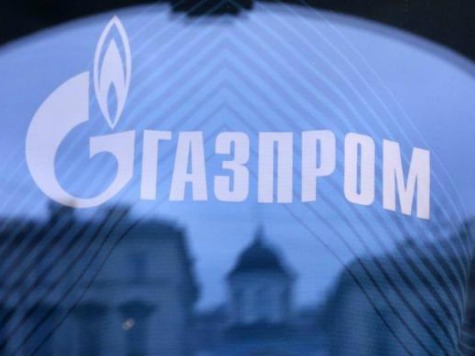
Russian President Vladimir Putin told Ukraine they will be charged a month in advance for gas. Ukraine countered and said they would only pay if they can agree on a price with Russia state-owned gas giant Gazprom. The energy crisis may prompt Putin to sign a 30-year gas deal with China.
This all started after the new government in Kyiv ousted Russia-backed president Viktor Yanukovych on February 22. Gazprom threatened to shut off gas to Ukraine and demanded Kyiv pay back their $1.9 billion debt. Then Gazprom told Ukraine they were raising the price on gas and dropping the discount deal they made with Yanukovych in December since Crimea is now part of the Russian Federation. The discount was agreed to after Ukraine allowed Russia to base their Black Sea fleet on the peninsula.
Ukraine is almost bankrupt and the price jump and paying in advance could hurt their economy even more.
Chairing a meeting with government ministers in his suburban residence outside Moscow, Putin said asking for advance gas payments “corresponded with the contract” between Ukraine and Russia. Still, he suggested that the state energy giant Gazprom to refrain from such drastic measures until “additional consultations” between both sides.
Ukraine told Russia that until Gazprom and Kyiv can come to a price agreement on gas, they will not pay.
“We have not settled the March payments yet as we have addressed our constructive suggestions on the gas pricing and consumption to Gazprom,” Ukrainian Energy Minister Yuriy Prodan said on April 9. “In fact, we suggest to go back to the agreements that we had in 2013.”
Gazprom raised the price to $383.50 per 1,000 cubic meters and Pordan said the company raised the price to $485. Ukraine will not pay more than $387 per 1,000 cubic meters. Pardon then said, “Let them go to court.” Ukraine might have a chance of winning the case.
Volodymyr Omelchenko, leading energy analyst for Razumkov Center, said that Ukraine stands a good chance of winning if it challenges the Russian gas price in Stockholm Arbitration Court. “However, people in Gazprom think that Ukrainian authorities are not able to protect the country’s interests,” he added.
The European Union also relies on Russia for energy, but they are exploring other options. While they were not mentioned in Gazprom’s original threat, the majority of the gas they receive from Russia flows through Ukraine. Plus, the EU promised to help Ukraine out, which means supplying gas if they need it. The situation concerned a few countries and ambassadors from Slovakia, Hungary, Czech Republic and Poland asked the US to export more natural gas to their countries.
If the EU finds energy supplies elsewhere, Putin will need another source of income. According to Bloomberg Businessweek, he might sign a 30-year deal with China. The decision will not be decided until next month, but the deal was actually first proposed in 1997.
“This time, Russia really may close the China gas supply deal considering that it’ll be more flexible on the price,” Ildar Davletshin, an oil and gas analyst at Renaissance Capital said by phone from Moscow. “China, too, needs this contract because the further use of coal is becoming unbearable in most developed parts of the country.”
“We hope to conclude the contract in May,” Deputy Prime Minister Arkady Dvorkovich said in Beijing today after meeting Chinese Vice Premier Zhang Gaoli, according to Itar-Tass news wire. “The Base price is the only problem to be solved.”
The Power of Siberia pipeline would flow through Russia and into China. Russia put a hold on the talks when China did not match the amount Russia received from Europe.
Starting not earlier than end of 2018, Gazprom plans to supply as much as 38 billion cubic meters of gas to China, about 24 percent of the company’s deliveries to Europe last year, which produced about $63 billion in export revenue, according to the company.
Gazprom needs the equivalent of about $13.50 per million British thermal units to profitably finance the pipeline and the development of Siberian gas fields to feed it, a total outlay of $90 billion, Maxim Moshkov, an energy analyst at UBS in Moscow, said by e-mail. CNPC won’t want to pay more than $11 at the border, a price Gazprom may be forced to meet, cutting into future earnings, Moshkov said.
The pipeline construction will cost $22 billion.
Chevron said they will honor their $10 billion fracking contract with Ukraine. The contract will allow the gas company to frack along the Ukraine-Poland border and they believe Ukraine could hold the third largest supply of natural gas reserves. The gas would provide a way for Ukraine to wean off their dependence on Russian energy.

COMMENTS
Please let us know if you're having issues with commenting.